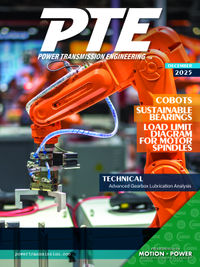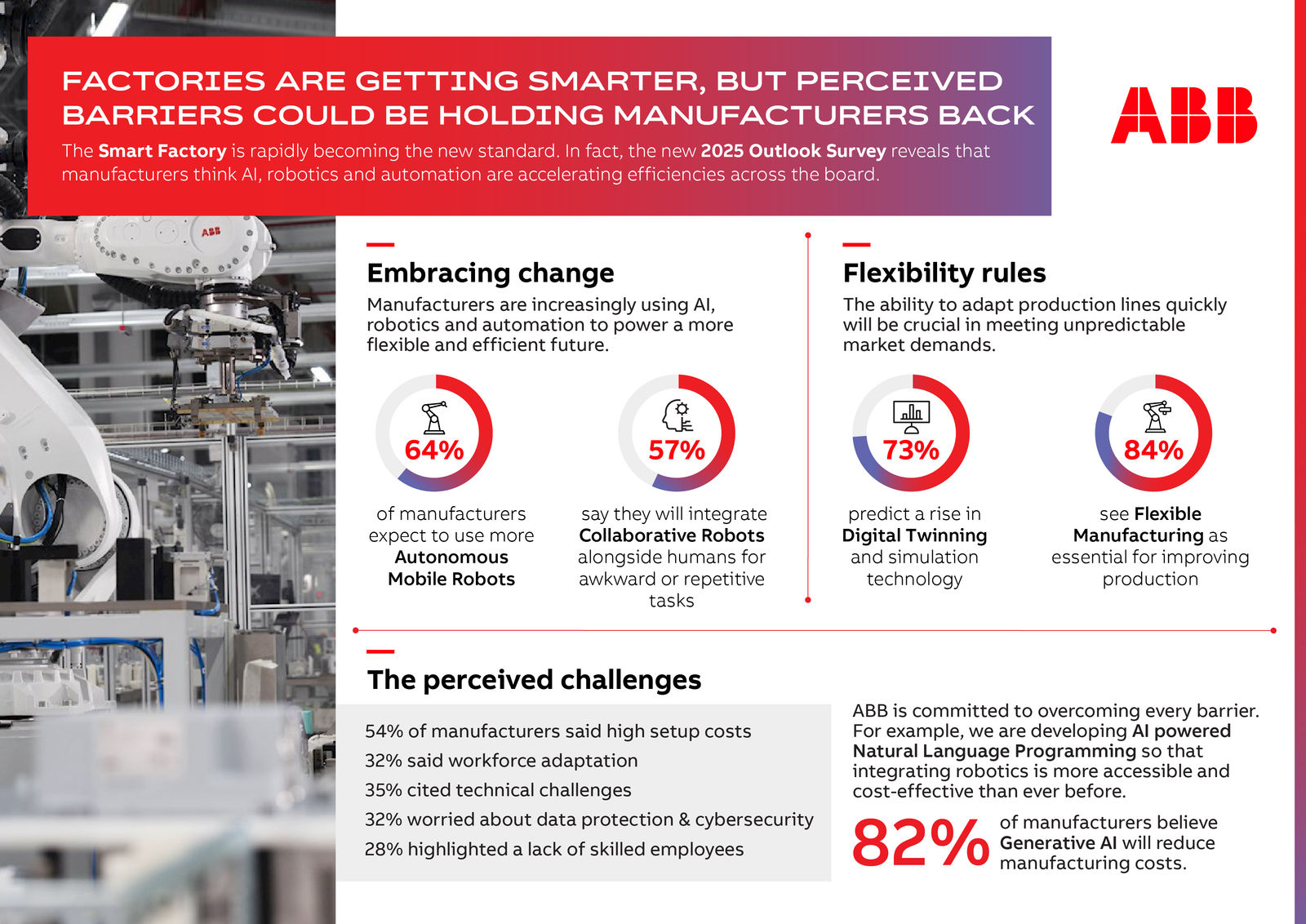ABB Identifies Smart Factories Crucial to Mixed Manufacturing of ICE, Hybrid and EVs
ABB Robotics’ third Automotive Manufacturing Outlook Survey, in partnership with Automotive Manufacturing Solutions, has highlighted how moving to the “Smart Factory” is viewed as a critical next step by global manufacturers and major suppliers.
“Automotive manufacturers are acutely aware that advanced robotics, Artificial Intelligence and digital twinning technology are positive drivers of change,” said Joerg Reger, Managing Director of ABB Robotics Automotive Business Line. "Together, these technologies are forming the building blocks of ‘Smart Factories’ which will help carmakers introduce new models more quickly and cost-effectively, while greatly reducing energy consumption and costs and meeting sustainability targets.”
The benefits of increasing the use of advanced manufacturing technologies, ranging from AI-powered autonomous mobile robots which deliver parts to the line to digital twinning technology, all featured prominently in the latest Manufacturing Outlook Survey.
The survey again highlighted the importance of robotics and advanced automation with 64 percent of respondents agreeing there would be an increase in the use of autonomous mobile robots (AMRs) in automotive manufacturing, while 57 percent agreed that more collaborative robots (cobots) will be introduced alongside workers to perform repetitive assembly tasks.
Respondents cited a major leap for the industry driven by generative AI and software, with 82 percent agreeing that leveraging this technology had the potential to reduce vehicle manufacturing costs, improve quality and streamline the introduction of new models. The adoption of another key technology, digital twinning and simulation, was also expected to rise significantly with 73 percent predicting greater uptake.
The survey also underlined how the uptake of flexible manufacturing was viewed as a crucial way to navigate the complexities many well-known manufacturers face. These include unpredictable levels of demand for certain vehicle types including EVs, hybrids and ICE vehicles, with manufacturers needing to assemble different powertrains on a single site, while maintaining faster product lifecycles. Over the next five years, 84 percent of those surveyed said flexible manufacturing would be a significant factor in vehicle manufacturing.





 Power Transmission Engineering is THE magazine of mechanical components. PTE is written for engineers and maintenance pros who specify, purchase and use gears, gear drives, bearings, motors, couplings, clutches, lubrication, seals and all other types of mechanical power transmission and motion control components.
Power Transmission Engineering is THE magazine of mechanical components. PTE is written for engineers and maintenance pros who specify, purchase and use gears, gear drives, bearings, motors, couplings, clutches, lubrication, seals and all other types of mechanical power transmission and motion control components.